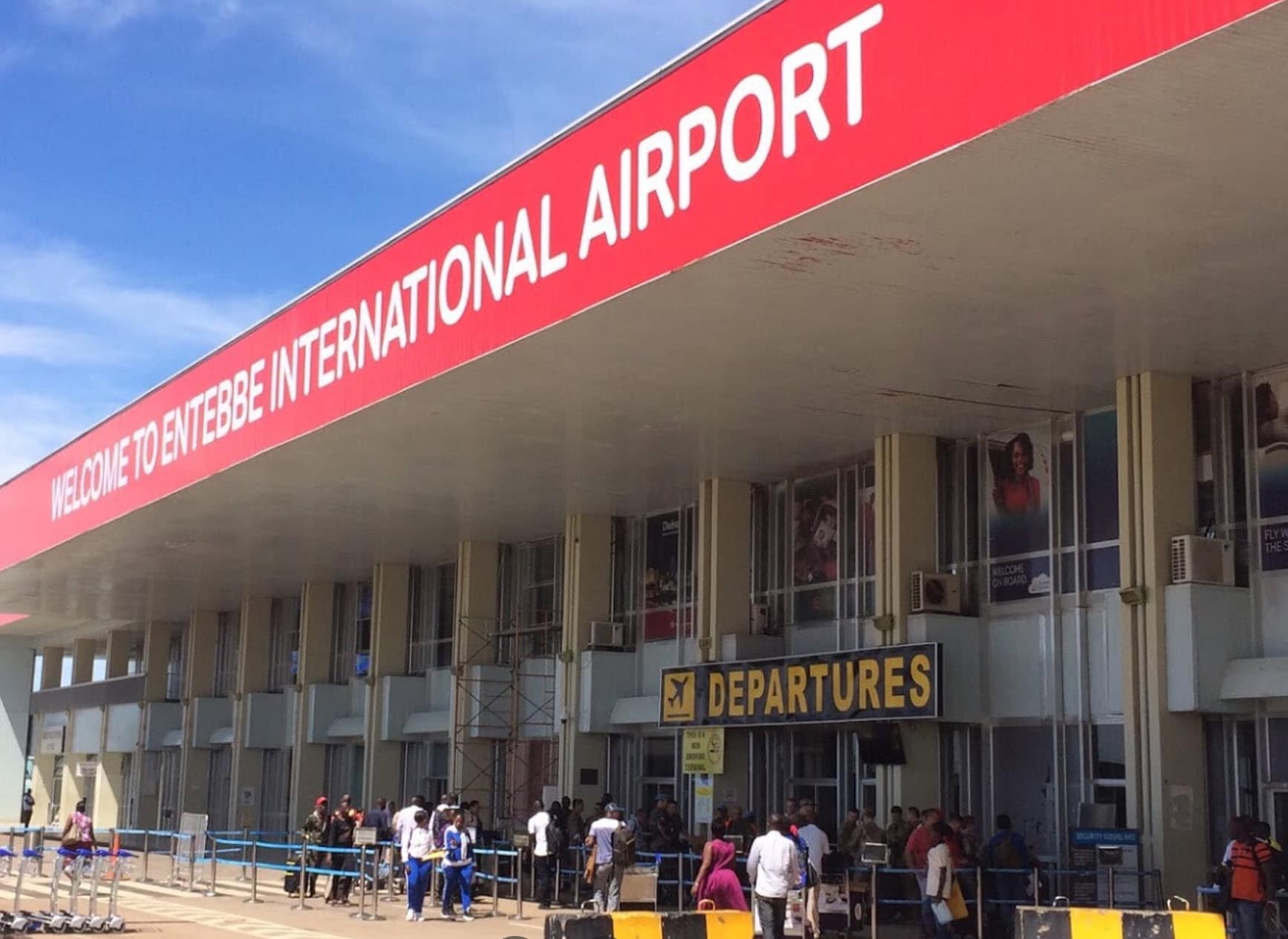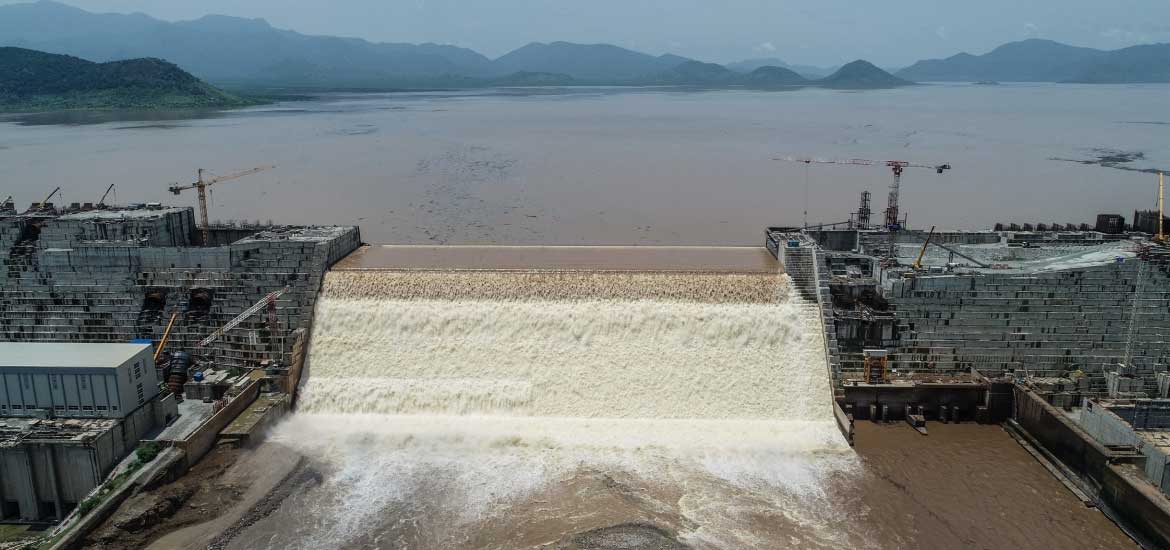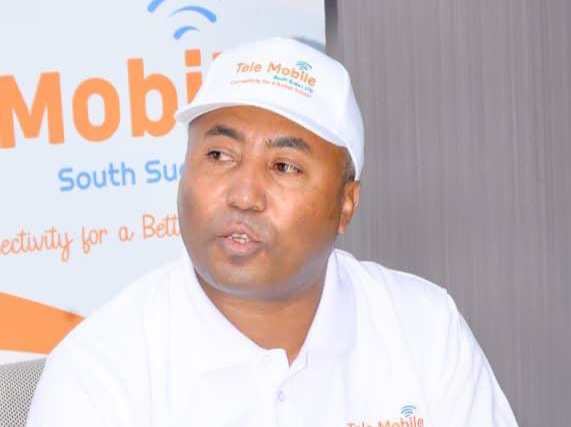December 18, 2022 (NAIROBI) -The controversy over the giant Ethiopian dam on the Blue Nile continues between the three riparian countries despite the endless meetings and mediations by regional and international institutions.
In fact, Addis Ababa turns a blind eye to the pressing demands by Cairo and Khartoum for a binding agreement on the shares of water and the operation dam. Ethiopian officials repeat they do not intend to prevent the downstream countries from water but they remain reluctant to ink any agreement with them over this sensitive issue fearing that it might be used to stop their ambition to be a regional hub for hydropower energy.
The Ethiopian government repeats that besides the development of their country the Blue Nile can serve as a natural source of a huge power that can cover the needs of the whole Horn of Africa and therefore enhance multilateral cooperation in the region.
Ethiopia’s ongoing hydropower projects have good promise to promote economic integration; electricity integration; infrastructural expansion; people-to-people relationships, and eventually political cooperation in the entire region.
Among others, hydropower exports from Ethiopia to Sudan and Djibouti and most recently to Kenya could be taken as the best example of fostering regional relations.
Thus, according to analysts, hydropower can foster regional integration in the volatile Horn of Africa region.
The Ethiopian government is spending billions of dollars to undertake several hydro-dam projects in a bid to meet domestic energy demand and further export electricity to neighbouring countries notably; Sudan, Kenya and Djibouti.
The huge investment is part of Ethiopia’s broader economic program to eventually link nine regional countries to a single electricity grid, they say.
In recent years, hydro-processed clean and cheap energy trading is becoming an important sphere of cross-border cooperation in the Horn of Africa.
Currently, Ethiopia exports 254 megawatts of electricity to Djibouti and Sudan. Last month, Ethiopia began selling power to Kenya, one month after the latter signed a 25-year power purchase deal with Ethiopia to import 600 megawatts of electricity.
The deal which runs until 2047, makes Ethiopia Kenya’s second-biggest source of hydropower.
According to the Ethiopian Ministry of Foreign Affairs, the new deal with Kenya intends to “realize the aspirations of both countries’ respective people for regional economic integration and sustainable development.”
The revenue from the exports will enable landlocked Ethiopia to pay for its port service at Djibouti and at Kenya’s Mombasa port.
While power exports to Sudan would allow the country to offset the fuel and oil costs it imports from Sudan.
More power exports
Furthermore, Ethiopia is preparing to start selling electricity to neighbouring Eritrea, South Sudan and Somalia. Ethiopia has signed an agreement to export an initial 100 MW of electricity to South Sudan, according to Ethiopian Electric Power Corporate Planning Executive Officer Andualem Siaa.
According to the agreement, Addis Ababa will export 100 MWs of electricity to Juba for the next three years and will supply 400 megawatts of power afterwards.
Addis Ababa has also signed memorandums of understanding with Somaliland, Tanzania and other African countries to supply them with hydro-processed electricity.
In the long term, Ethiopia hopes to become a regional power export hub. Consequently, Ethiopia plans to export electricity to Egypt, Yemen and other Eastern and Southern African countries.
The most magnificent commitment of the government to utilize its water resources for the generation of power is manifested in the construction of the Ethiopian Grand Renaissance Dam (GERD) which is being constructed on the Nile River near the Sudanese border.
GERD would make Ethiopia one of the main producers and exporters of power in Africa by satisfying the domestic energy demand and exporting energy to the Horn of African countries through the regional interconnection system.
Regional Integration
GERD can play a pivotal role in boosting regional integration by providing energy interconnection and economic interdependence among states of the region in spite of several challenges ahead, says Metta-Alem Sinishaw, a senior political analyst on the East African region.
“Besides regulating the steady flow of water, GERD removes 90 per cent of silt and sedimentation for Sudan and Egypt and supplies Ethiopia with electricity to accelerate their industrialization,” said Metta-Alem.
“In addition to promoting equitable and reasonable utilization of water resources, GERD also aims at exporting electricity to neighbouring countries and thereby contribute to regional integration through the spillover effect of electricity trade beyond the energy sector.”
He underscored that GERD will be instrumental to improve interstate relations, remove barriers to commerce, accelerate economic development, and alleviate millions from poverty.
“By enhancing socio-economic integration, the region builds resilience in the management of water resources against growing environmental degradation and minimizes human suffering” Metta-Alem added.
Diffuse regional tensions
According to the political analyst, GERD will also be a catalyst for maintaining peace and stability in the volatile Horn of Africa region
“GERD and its resources could serve as a platform for forging new partnerships, enhancing harmonious relationships, discouraging meddling, and promoting the peaceful settlement of disputes and conflicts.”
“GERD is a rare positive opportunity to build consensus and cooperation in the region and curb armed conflicts, political instability, communal clashes and social upheavals, radicalism, transregional terrorism, illicit human and drug trafficking, and piracy and other related international crimes” Metta-Alem added.
Sudan, Egyptian concerns
As to Ethiopia, the mega-dam project is meant to bring light to over 65 % of Ethiopia’s 117 million population who remain without access to electricity.
While for Sudan and Egypt the controversial mega-dam project is seen as a threat to their historic water shares from the Nile River, Addis Ababa yet argues the dam won’t impact the natural water flow into the Nile River.
Cairo and Khartoum still insist on a legally binding agreement with Ethiopia on the overall operation of the dam, to ensure Egypt water shares from one side while Sudan insists on the exchange of data during the filing and operation of the dam.
Calls for a binding deal
A few days ago, Egyptian President Abdel-Fattah al-Sisi made fresh calls on Ethiopia to engage in good faith with Egypt and Sudan to reach a legally binding agreement on the controversial Grand Ethiopian Renaissance Dam (GERD) as provided in the declaration of principles signed in 2015.
Al-Sisi made the call at the China-Arab Summit which was held on December 9 in Riyadh, Saudi Arabia. It was an indirect request to Beijing to press Addis Ababa in this respect.
The Egyptian leader called for a binding agreement to be reached between the trios through sincere talks to end a long-standing feud on the Nile dam.
“I would like to, once again, call on the brothers in Ethiopia to engage in good faith with Egypt and Sudan to reach a legally-binding agreement, that secures the rights of development for present and future generations and spares them from threats to their stability, security and safety,” al-Sisi said.
President al-Sisi also held a meeting with the Chairman of Sudan’s Transitional Sovereignty Council, General Abdel Fattah al-Burhan on the sidelines of the China-Arab States summit where the two sides exchanged views on the latest developments in the Ethiopian Grand Renaissance Dam.
They underlined their agreement on the utmost importance of the water issue to the Egyptian and Sudanese people as a national security issue.
They reiterated the two countries’ adherence to reaching a legally-binding agreement on the filling and operation processes of the dam, that shall achieve the common interests of all parties.
A series of tripartite negotiations brokered by the African Union and the US government to get Ethiopia, Egypt and Sudan to reach a final and binding agreement did not succeed and talks remained stalled for years, with the three parties ultimately failing to reach any agreements. on the outstanding issues.
Ethiopian officials say that the completion of the massive power plant project would be considered a symbol of regional integration in the Horn of Africa.
On 20, February, Ethiopia started generating electricity for the first time from GERD since the launch of the $4.8 bn project in 2011.
The 145-meter-high dam started generating 375 megawatts of electricity from one of its turbines.
Upon completion, the dam which would be Africa’s largest is expected to generate over 5,500 megawatts of electricity.
Source: Sudan Tribune



